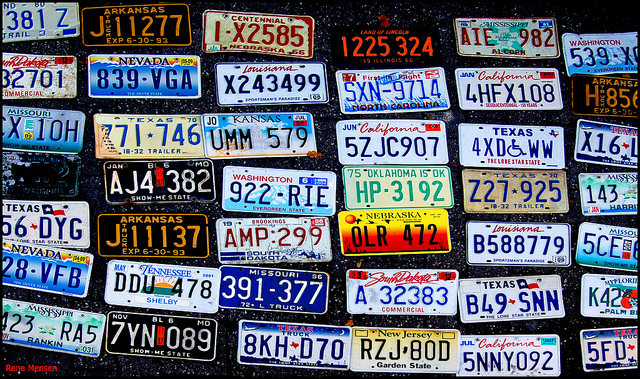Lectionary Reflection for Christ the King Sunday, Year B, November 22, 2015
Jesus answered, “My kingdom is not from this world. If my kingdom were from this world, my followers would be fighting to keep me from being handed over to the Jews. But as it is, my kingdom is not from here.” John 18:36
In one of my former vocational lives, actually freshly scrubbed and just out of college, I worked for a regional business college as an admissions recruiter and business communications instructor. Part of my job included traveling to high schools within a couple hours drive of Chattanooga to recruit students and/or teach classes for overworked high school business and English teachers. On this particular day I was traveling to a high school on Sand Mountain (ever read the book Salvation on Sand Mountain by Dennis Covington?), and I stopped at a local restaurant. Yes, I had out-of-state tags on my car (but only from one state over), and yes, I was fully decked out in a business suit and pumps, but I didn’t realize how out of place I looked until a local sheriff’s deputy pulled into the parking lot and started giving my Mazda the “once-over.” He came in, said hello to a few folks, and then walked by my booth. He stopped, rubbed the back of his neck, said “How do, mam” and then “You’re not from around these parts ‘er ya?” He continued his line of inquiry until he was satisfied that I was indeed a harmless, slightly terrified wet-behind-the-ears teacher and not someone passing through and up to no good.
It was the first time in my life that I can remember being truly aware that I was a stranger in a strange land–a land that was only 90 or so minutes from my home. But I didn’t fit in. I looked out of place. I talked just differently enough. I was definitely dressed differently than most folks. And it was uncomfortable.
Have you ever been in a similar situation?
As faithful church folk, I suspect you have. Or at least I truly hope you have. Because we ought to stick out somewhat in this world. People ought to sense something different about us. Or like one of my favorite Southern authors, Flannery O’Connor said, “You shall know the truth, and the truth shall make you odd.” We Christians should be perceived as odd folk. Our Lord surely stood out as different. And we know the  truth he proclaimed. Therefore, we should claim our identity as odd folk from a different reality.
truth he proclaimed. Therefore, we should claim our identity as odd folk from a different reality.
Our gospel lesson for Christ the King Sunday is this snippet from the passion story–Jesus stands before Pilate in the halls of earthly power–beaten, berated, bruised, and bleeding. What a sight he must have been, what a contrast to Pilate in his finery, exercising his seeming might. And they have this rather sideways conversation that ends up with Jesus telling the earthly ruler that he himself is not of this world but was “born for this”. That he came to earth to be the ultimate truthteller. That he’s here to make a clear distinction between the ways of this world, where right is all too often defined by might and where war and carnage are the tools of power, and the divine reign.
So that makes us, as Christians, little truth-tellers. And because we belong to the one who is the ultimate truth-teller we’d better listen up. We’d better make sure we get that distinction, too. But it’s hard to listen for Christ’s voice in this brutal, broken, yet simultaneously beautiful world. So much gets in the way, so many noisy claims and clamorings–for our people, and for us. And violence begets fear and fear begets inaction or, worse yet, reaction. And on and on the cycle spins.
This coming Sunday we again come to the end of the church year and that really rather recent addition to the liturgical calendar: Christ the King Sunday. Most of you know probably know the history, but just in case you’ve forgotten or somehow missed that day in seminary, here’s the 25 cent historical tour. Pope Pius XI instituted The Feast of Christ the King in 1925 to celebrate Christ’s universal authority and existence in the face of rising secularism, to which Pius attributed the increasing denial of Christ.
Writing in his encyclical, Quas Primas, Pius outlined three effects that he hoped the celebration of this festival would have on both the faithful and the not-so-faithful
1. That nations would see that the Church has the right to freedom, and immunity from the state (Quas Primas, 32).
2. That leaders and nations would see that they are bound to give respect to Christ (Quas Primas, 31).
3. That the faithful would gain strength and courage from the celebration of the feast, as we are reminded that Christ must reign in our hearts, minds, wills, and bodies (Quas Primas, 33).
Reeling from the devastation and despair of the first World War, the church needed a reminder, needed a celebration that would call the faithful back, to remind them that there was more than destruction and anarchy. Just a few years earlier, the Irish poet William Butler Yeats wrote “The Second Coming”:
Turning and turning in the widening gyre
The falcon cannot hear the falconer;
Things fall apart; the centre cannot hold;
Mere anarchy is loosed upon the world,
The blood-dimmed tide is loosed, and everywhere
The ceremony of innocence is drowned;
The best lack all conviction, while the worst
Are full of passionate intensity.
Surely some revelation is at hand;
Surely the Second Coming is at hand.
The Second Coming! Hardly are those words out
When a vast image out of Spiritus Mundi
Troubles my sight: a waste of desert sand;
A shape with lion body and the head of a man,
A gaze blank and pitiless as the sun,
Is moving its slow thighs, while all about it
Wind shadows of the indignant desert birds.
The darkness drops again but now I know
That twenty centuries of stony sleep
Were vexed to nightmare by a rocking cradle,
And what rough beast, its hour come round at last,
Slouches towards Bethlehem to be born?
Not much has changed has it? Last week we had stones tumbling down and wars and rumors of wars in the gospel lesson. In the world we  watched and read in horror as terrorists killed almost 130 people in Paris, and wounded some 350 more. Just a day earlier, 43 people were killed by suicide bombers in Beirut, Lebanon, wounding many, many more. Here in the United States the specter of racism continues to rear its ugly head–this time at the University of Missouri.
watched and read in horror as terrorists killed almost 130 people in Paris, and wounded some 350 more. Just a day earlier, 43 people were killed by suicide bombers in Beirut, Lebanon, wounding many, many more. Here in the United States the specter of racism continues to rear its ugly head–this time at the University of Missouri.
As tragic as these violent actions and protests have been, in the aftermath we are hearing dangerous new rhetoric, or rather, the old and familiar dangerous rhetoric pumped up to a new volume. We hear the voices of those who call for violent revenge, for persecution of anyone belonging to the tribe or groups involved. We are hearing the voices of the intolerant, the reactionary, the unthinking, the prejudiced and the xenophobic.
And amid this, we can be truth-tellers in the footsteps of the ultimate truth-teller. Yes, we can demand that the evildoers be caught and that our governments keep us protected, but, even more so, we can proclaim peace, call for justice, and cry for mercy, understanding, and tolerance. In doing so, we will show that we really aren’t from around here, and our Kingdom is not of this world.
In Worship
Explore in worship what it means to be a “truth-teller.” Who are the truth-tellers in our world? Yes, Jesus was the ultimate truth-teller, and prophets throughout scripture were also called to tell the truth without counting the cost. What does it mean for us today to speak the truth in love? Does it mean working for justice and mercy? Does it mean taking the difficult path for the sake of the gospel? Invite congregants to write the names of famous (or not-so-famous) truth-tellers on brightly colored ribbons. Weave the ribbons into a “web of truth” that is held together by base threads on which the name of Jesus is written. Remind your people that we are stronger together, that when we stand for justice and mercy and speak truth as Body of Christ, we have a powerful witness that this world cannot defeat. Continue the conversation begun in worship through your congregation’s social media outlets.
With Youth
Consider sharing the story of Ashley Powys, a 22-year-old London resident, who came to the defense of a young Muslim girl wearing a hajib. Both were riding a tube when a man began harassing the girl and calling her names. Powys sat with the girl to create a human shield, tried to distract her, and then rode past his own stop to accompany the woman to her destination where she was meeting friends. Powys posted about the incident on Facebook, finish with these words: “Please take care of each other. Both friends and strangers. You never know when you might need someone to do the same in return.” Click here to read the entire story.
Invite youth to discuss the story. What would they do in a similar situation? Have they every had anything like this happen to them or to someone they know? How can we practice love of neighbor in very concrete and faithful ways?
With Children
John’s Revelation is a tough book to use for a children’s sermon, but this week’s passage offers a good opportunity to discuss God as Alpha and Omega. Share the Greek alphabet with the children, showing them that Alpha is the first letter and Omega is the last letter. Ask them what the first and last letters of the English alphabet are. Talk about how God is so big and so powerful and so all-encompassing (covering everything from A – Z) that it’s difficult to even begin to describe God. But we can try! Give the children a sheet with the letters of the English alphabet and invite them to come up with a descriptive word for God for each letter. Some will be easy, but others will prove puzzling–almost impossible. When they get stuck trying to describe God, remind them that it is perfectly fine. God cannot be contained–not by an alphabet or a box or even a cross. Finish with a simple prayer. Challenge the children to continue to try to come up with words to describe the wonderful and amazing God we worship and serve.
Photos: Alias 0591, Steven DePolo, and Lion Multimedia Productions, Creative Commons. Thanks!




Leave a Reply